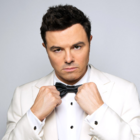"It's a commonplace to say that we each tell stories about ourselves, trying to shape how others perceive us, and how we perceive ourselves. And the commonplace is true, as far as it goes-which isn't very far at all. As neuroscientist Gregory Berns shows in The Self Delusion, you, I, we don't just tell stories about ourselves. We are the stories-there's no stable personality to tell stories about. What's more, the stories are, for the most part, false. How could this be so? As for the "you" reading this, it's nothing more than a fleeting phenomenon, continually reborn as our conscious mind receives, filters, or acts on incoming information, from the world and our memories. The you that read the previous sentence is dead-and the one that read that! What we really have are the stories our minds tell about past selves, and about the possibilities of future ones. And the biggest question is whether we - "I", "you", whoever-can control any of the stories we tell about ourselves at all. Take your earliest memory: as Berns shows, it's very likely you don't actually have a memory of the event, but of a story implanted there, most likely by a parent, who was telling you something about what they remembered and thought about you. Layer on that the fact that our brain stores very little about events that we do remember, and that each memory is stitched together and rewritten, whenever it is called upon, by a brain built to make assumptions and predictions about how things are likely to have gone and are likely to mean-not to keep a high-resolution video of how they went or what they meant at the time. Or consider your most deeply held beliefs: surely you'd never violate them? As Berns shows, what other people think, do, and say influences us so greatly that people will abandon almost any belief. Indeed-as he shows with an ingenious research program based on auctions-most beliefs are literally up for sale in the currency of social approval. And that's hardly all: ranging over a huge range of neuroscience, social science, and psychiatry, covering everything from the evolution of the brain to the origins of feelings, from the birth of epic storytelling to what it's like to drive a car, Berns shows that our stories and so ourselves are almost infinitely pliable. But this book reaches no depressing conclusion: instead, as Berns argues, we can indeed take control of our visions of our future selves: the stories, ourselves, are pliable enough that if there's self we want to invent, we probably can. Indeed, he provides us with the tools to choose and be true to bedrock principles, and to aim to make this life not one where we are victims of faulty memories or social suasion, but drivers of our own destinies; from simple tips such as changing how we think about our emotions (e.g., saying "I feel angry" instead of "I am angry") to an amazing argument about how thinking (a little) like a computer can help us lead our best lives, not by making the best choices, but by avoiding the ones that will cause the most regret. Ultimately, The Self Delusion shows how we can break away from inherited, constructed, even corrupted narratives in order to tell a new story of ourselves: the story we want to tell"--
